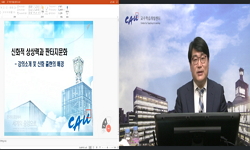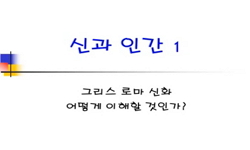이러한 스탈린주의 향수는 2000년 푸틴 대통령의 등장과 함께 러시아가 1990년대 옐친 시대의 ‘새로운 러시아’에서 전면 부정되었거나 거부되었던 소비에트 유산에서 긍정적 가치나 경험, ...
http://chineseinput.net/에서 pinyin(병음)방식으로 중국어를 변환할 수 있습니다.
변환된 중국어를 복사하여 사용하시면 됩니다.
- 中文 을 입력하시려면 zhongwen을 입력하시고 space를누르시면됩니다.
- 北京 을 입력하시려면 beijing을 입력하시고 space를 누르시면 됩니다.
소비에트 노스탤지어: 푸틴 시대 러시아 문학에 나타난 스탈린주의 이미지
한글로보기https://www.riss.kr/link?id=G3762729
- 저자
-
발행기관
-
-
발행연도
2010년
-
작성언어
Korean
-
주제어
푸틴 시대 ; Prokhanov ; Voinovich ; “Justification ; Aksenov ; Sorokin ; Sharov ; ” “Ice ; Bykov ; Image ; Alternative History ; Apocalypse ; Anti-Christ ; Demon ; Strong Hand ; Hero ; Repression ; Purges ; Stalin(ism) ; Soviet Nostalgia ; Identity ; Literature ; Culture ; History ; Putin ; Postmodernism ; Socia ; 러시아 문학 ; 소비에트 노스탤지어 ; 스탈린주의 ; 브이코프 ; 소로킨 ; 악쇼노프 ; 알렉산드르 프로하노프 ; 환상 ; 신화 ; 폭력 ; 초현실주의 ; 대안역사 ; 포스트모더니즘 ; 모스크바 Putin's Time ; Russian literature ; Soviet Nostalgia ; Stalin ; Stalinism ; Dmitrii Bykov ; Vladimir Sorokin ; Vasilii Aksenov ; Aleksandr Prokhanov ; Fantasy ; Myth ; Violence ; Surrealism ; Alternative History ; Postmodernism ; Moscow
-
자료형태
한국연구재단(NRF)
-
0
상세조회 -
0
다운로드
부가정보
국문 초록 (Abstract)
본 연구에서는 이러한 특징적 현상이 현저하게 나타나 있고 ‘대안 역사’의 장르 형식과 환상적 재현 기법의 측면에서 일정한 공통점이 형성돼 있는 드미트리 브이코프, 블라디미르 소로킨, 바실리 악쇼노프의 소설 텍스트를 분석 대상으로 삼아 그 안에 나타난 스탈린주의 이미지와 그것의 다양한 문학적, 문화적 함의를 본격적으로 고찰해본다.
이러한 스탈린주의 향수는 2000년 푸틴 대통령의 등장과 함께 러시아가 1990년대 옐친 시대의 ‘새로운 러시아’에서 전면 부정되었거나 거부되었던 소비에트 유산에서 긍정적 가치나 경험, 전통을 살려 ‘러시아의 것’으로 적극 변용하여 수용하고 일반 대중들 사이에서도 소비에트 과거를 애틋하게 바라보고 기억하는 정서가 점차 확산되면서 러시아 문학의 풍경에서도 본격적으로 재등장하기 시작한다. 이와 함께 러시아 문학에서는 다양한 경향의 작가들 사이에서 스탈린주의의 유산에 대한 재평가나 재조명 열기가 다시 한 번 뜨겁게 전개되는데, 그 선두에는 신세대 시인이자 작가인 드미트리 브이코프가 서 있었다. 이렇게 2001년 브이코프의 <변명>을 시작으로 2006년 악쇼노프의 <모스크바.. 크바 크바>에 이르기까지 2000년대 푸틴 시대 러시아 문학에서는 ‘소비에트 노스탤지어’ 바람에 대한 다양한 반응과 함께 스탈린주의 이미지의 다채로운 스펙트럼이 넓게 펼쳐지면서 러시아 소설의 이념적 내용과 미학적 형식에서도 새로운 변화가 일어나는데, 푸틴 시대 러시아 문학에 나타난 ‘소비에트 노스탤지어’와 스탈린주의 이미지가 갖는 특별한 의미도 여기에서 연유한다.
본 연구에서는 이러한 특징적 현상이 현저하게 나타나 있고 ‘대안 역사’의 장르 형식과 환상적 재현 기법의 측면에서 일정한 공통점이 형성돼 있는 드미트리 브이코프, 블라디미르 소로킨, 바실리 악쇼노프의 소설 텍스트를 분석 대상으로 삼아 그 안에 나타난 스탈린주의 이미지와 그것의 다양한 문학적, 문화적 함의를 본격적으로 고찰해본다.
다국어 초록 (Multilingual Abstract)
In this study we shall investigate and analyze stalinist images and their cultural significance in the novels of Dmitrii Bykov, Vladimir Sorokin, and Vasilii Aksenov that shows Russian nostalgia for stalinism.
Nostalgia for Stalinism in the cultural landscape of Russian literature made its salient appearance when some positive values, experiences or tradition of Soviet legacy, which was completely negated or rejected in Yeltsyn's "new Russia," were adopted ...
Nostalgia for Stalinism in the cultural landscape of Russian literature made its salient appearance when some positive values, experiences or tradition of Soviet legacy, which was completely negated or rejected in Yeltsyn's "new Russia," were adopted by Putin's regime in the 2000s. At the same time, many Russian writers of different generations and various ideological tendencies began to reconsider or re-estimate Stalinist legacy. Dmitrii Bykov was a leading writer and poet among those who were in search of new stories and forms for stalinist legacy in contemporary Russian literature. In Russian literature of Putin's time, from his novel Justification(Opravdanie) in 2001 to Vasilii Aksenov's Moscow.. cow cow, there took place a significant change in the ideological content and aesthetic form of the Russian novel. Most important, however, is the fact that such a change is closely associated with nostalgia for stalinism in Russian consciousness. This is the main reason why we should explore Stalinist images in modern contemporary Russian literature.
In this study we shall investigate and analyze stalinist images and their cultural significance in the novels of Dmitrii Bykov, Vladimir Sorokin, and Vasilii Aksenov that shows Russian nostalgia for stalinism.











